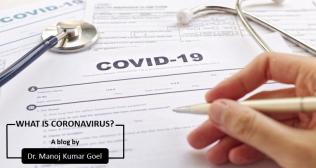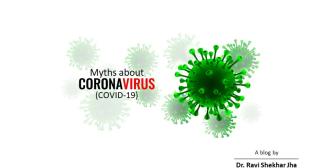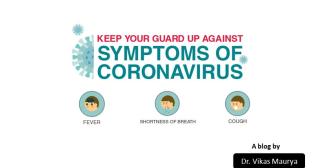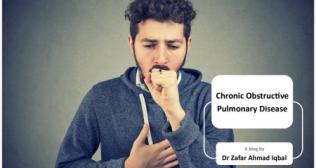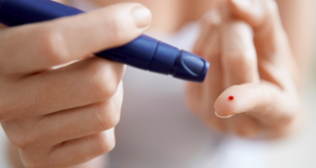
Celebrate Diwali the Healthy Way: Smart Choices for Your Heart, Gut, and Lungs
Diwali is a time of joy, togetherness, and delicious indulgence. The air is filled with light, laughter, and the aroma of sweets and festive food. However, behind the sparkle lies a set of health challenges that can affect your heart, lungs, and digestion. From overeating to pollution exposure, the festival can strain your body if precautions are not taken.
This Diwali, let’s make conscious choices that help you celebrate safely and keep your health in balance. Here’s how you can protect your body while enjoying every moment of the festival.
Manage Digestive Issues During Festive Feasting
Diwali celebrations are incomplete without sweets, fried snacks, and heavy meals. However, overeating can lead to constipation, bloating, and indigestion. The sudden shift from regular meals to calorie-dense foods can disturb your gut rhythm.
Prevent Constipation with Simple Remedies
To avoid discomfort, include constipation remedies like:
- Drinking warm water early in the morning
- Adding fiber-rich foods such as fruits, oats, and leafy vegetables
- Consuming probiotics like yogurt or curd
- Avoiding excessive sweets and refined flour
Taking short walks after meals and staying hydrated helps stimulate bowel movement naturally. If you experience persistent constipation, consult your doctor for appropriate medication or diet adjustment.
Keep Your Cholesterol Levels in Check
During Diwali, traditional sweets and fried foods are often prepared with ghee, oil, and sugar. These foods may be delicious, but they can cause a spike in cholesterol levels if consumed excessively.
Heart-Healthy Eating Tips
- Use healthy oils like olive or sunflower oil for cooking
- Replace deep-fried snacks with roasted or baked versions
- Add nuts like almonds and walnuts, which help maintain good cholesterol
- Avoid reusing cooking oil
Balancing festive treats with fiber, fruits, and vegetables helps your heart stay strong. High cholesterol can lead to blocked arteries and increase the risk of heart disease, especially for individuals already dealing with lifestyle disorders.
Stay Physically Active
Diwali often brings late nights and reduced physical activity. Even light exercise such as walking, yoga, or stretching for 20 minutes a day can help regulate cholesterol levels and improve blood circulation.
Avoid Unwanted Weight Gain
Festival season often leads to unintentional weight gain due to overeating and irregular meal timings. However, healthy celebration doesn’t mean giving up your favorite foods; it means practicing moderation.
Tips for Weight Gain Management
- Eat smaller portions instead of skipping meals
- Avoid sugary drinks and carbonated beverages
- Balance your plate with proteins, vegetables, and complex carbs
- Limit late-night snacking
Weight gain management during Diwali is not about strict dieting. It’s about portion control, mindful eating, and staying consistent with light exercise. If you’ve already gained a few kilos during the festivities, gradually return to your normal routine rather than resorting to crash diets.
Protect Your Lungs from Pollution
The air quality during Diwali deteriorates significantly due to firecrackers and smoke. This pollution can trigger breathing difficulties, cough, and irritation, especially in individuals with pre-existing respiratory conditions.
Understanding Common Lung Problems
Exposure to polluted air can cause or worsen lungs problem such as:
- Coughing, wheezing, or shortness of breath
- Chest tightness
- Throat irritation or burning sensation
- Fatigue or difficulty breathing during physical activity
If you notice any sign of lung infection like persistent cough, phlegm, or fever, it’s crucial to seek medical attention early.
Recognizing Lung Disease Symptoms
During Diwali, air pollutants such as PM2.5 and sulfur dioxide can aggravate respiratory conditions. Common lung disease symptoms include:
- Shortness of breath or heavy breathing
- Chest pain or discomfort
- Chronic cough with mucus
- Dizziness or fatigue
Wearing a mask while going outdoors, especially in high-smoke areas, can reduce your exposure to harmful pollutants. Avoid early morning or late-night walks when air quality is poor.
Effective Home Care for Lung Health
Taking preventive steps can significantly reduce your risk of developing lung-related issues. Along with limiting firecracker exposure, try these home-based care practices for lungs damage treatment and protection.
Home Remedies and Lifestyle Tips
- Inhale steam with a few drops of eucalyptus oil to clear your airways
- Include foods rich in antioxidants, such as turmeric and ginger
- Maintain indoor air purity by using air purifiers or keeping indoor plants
- Avoid smoking and secondhand smoke
If you have chronic respiratory conditions like asthma or bronchitis, keep your inhalers and prescribed medication handy during the festive season. Early detection and treatment help prevent serious complications.
Stay Mindful of Allergies and Sensitivities
Diwali decorations often involve scented candles, incense sticks, and chemical-based rangoli colors that can trigger allergies. People with respiratory or skin sensitivities should be extra cautious.
- Opt for natural or organic candles and colors
- Keep your home ventilated during celebrations
- Use mild, fragrance-free cleaning products
- Keep allergy medications easily accessible
Such precautions ensure you enjoy the festival without irritation, sneezing, or allergic discomfort.
Prioritize Hydration and Balanced Nutrition
Hydration is often overlooked during the excitement of Diwali. However, staying hydrated aids digestion, supports kidney function, and keeps your energy levels stable.
Drink at least 8–10 glasses of water daily, especially if you consume fried or spicy foods. Herbal teas and coconut water are great alternatives for hydration and detoxification.
Including seasonal fruits, salads, and soups in your meals provides essential nutrients that support the liver and gut during festive indulgence.
Limit Firecracker Usage for a Cleaner Celebration
Firecrackers are one of the major causes of poor air quality during Diwali. Limiting or avoiding them is the most effective way to protect your health and the environment.
Encourage your family and community to celebrate with eco-friendly options such as diyas, lights, and flowers. Not only does this protect your lungs and reduce sign of lung infection, but it also promotes a sustainable way of celebrating.
Rest Well and Manage Stress
Festivities often lead to irregular sleep schedules and increased stress due to preparations and social gatherings. Poor sleep can weaken your immunity and affect digestion and heart health.
- Ensure 7–8 hours of quality sleep
- Practice deep breathing or meditation to reduce stress
- Maintain a calm routine amid festive chaos
Rest allows your body to recover and keeps your metabolism balanced, helping with both weight gain management and energy stability.
Post-Diwali Detox and Health Reset
After the celebrations, your body needs a gentle detox to restore balance. This doesn’t mean fasting or extreme diets but gradually returning to a balanced, nutritious routine.
Simple Post-Diwali Detox Plan
- Start your day with warm water and lemon
- Eat light, home-cooked meals
- Include green leafy vegetables and fiber
- Avoid sugary and oily foods for a week
A light detox helps manage digestion, stabilize cholesterol levels, and reduce inflammation caused by festive indulgence.
A Bright and Healthy Diwali Awaits
Diwali is a time to celebrate health, happiness, and togetherness. With a few mindful choices, you can make it both joyful and safe. By balancing your diet, staying active, avoiding excessive firecracker exposure, and taking care of your digestion and lungs, you can truly enjoy the spirit of the festival without compromising your well-being.
Let this Diwali be not only about lights and sweets but also about conscious living and healthy habits. Celebrate responsibly, eat mindfully, breathe deeply, and keep your heart, gut, and lungs healthy for a brighter, safer Diwali.
Popular Searches:
Hospitals: Cancer Hospital in Delhi | Best Heart Hospital in Delhi | Hospital in Amritsar | Hospital in Ludhiana | Hospitals in Mohali | Hospital in Faridabad | Hospitals in Gurgaon | Best Hospital in Jaipur | Hospitals in Greater Noida | Hospitals in Noida | Best Kidney Hospital in Kolkata | Best Hospital in Kolkata | Hospitals in Rajajinagar Bangalore | Hospitals in Richmond Road Bangalore | Hospitals in Nagarbhavi Bangalore | Hospital in Kalyan West | Hospitals in Mulund | Best Hospital in India | Gastroenterologist in Jaipur | Cardiology Hospital in India
Doctors: Dr. Rana Patir | Dr. Rajesh Benny | Dr. Rahul Bhargava | Dr. Jayant Arora | Dr. Anoop Misra | Dr. Manu Tiwari | Dr. Praveer Agarwal | Dr. Arup Ratan Dutta | Dr. Meenakshi Ahuja | Dr. Anoop Jhurani | Dr. Shivaji Basu | Dr. Subhash Jangid | Dr. Atul Mathur | Dr. Gurinder Bedi | Dr. Monika Wadhawan | Dr. Debasis Datta | Dr. Shrinivas Narayan | Dr. Praveen Gupta | Dr. Nitin Jha | Dr. Raghu Nagaraj | Dr. Ashok Seth | Dr. Sandeep Vaishya | Dr. Atul Mishra | Dr. Z S Meharwal | Dr. Ajay Bhalla | Dr. Atul Kumar Mittal | Dr. Arvind Kumar Khurana | Dr. Narayan Hulse | Dr. Samir Parikh | Dr. Amit Javed | Dr. Narayan Banerjee | Dr. Bimlesh Dhar Pandey | Dr. Arghya Chattopadhyay | Dr. G.R. Vijay Kumar | Dr Ashok Gupta | Dr. Gourdas Choudhuri | Dr. Sushrut Singh | Dr. N.C. Krishnamani | Dr. Atampreet Singh | Dr. Vivek Jawali | Dr. Sanjeev Gulati | Dr. Amite Pankaj Aggarwal | Dr. Ajay Kaul | Dr. Sunita Varma | Dr. Manoj Kumar Goel | Dr. R Muralidharan | Dr. Sushmita Roychowdhury | Dr. T.S. MAHANT | Dr. UDIPTA RAY | Dr. Aparna Jaswal | Dr. Ravul Jindal | Dr. Savyasachi Saxena | Dr. Ajay Kumar Kriplani | Dr. Nitesh Rohatgi | Dr. Anupam Jindal |Dr. Subhaprakash Sanyal |Dr. PRIYANKA VASUDEO MOULE |Dr. Sohini Chakraborty |Dr. Akash Khandelwal |Dr. Nikhil M Kumar |Dr. Anita Mathew |Dr. Hasmukh Ravat
Specialties: Heart Lung Transplant | Haematology and BMT | Orthopedic | Cardiology Interventional | Obstetrics & Gynaecology | Onco Radiation | Neurosurgery | Interventional Cardiology | Gastroenterologist in Jaipur | Neuro Physician | Gynecologist in Kolkata | Best Neurologist in India | Liver Transfer







